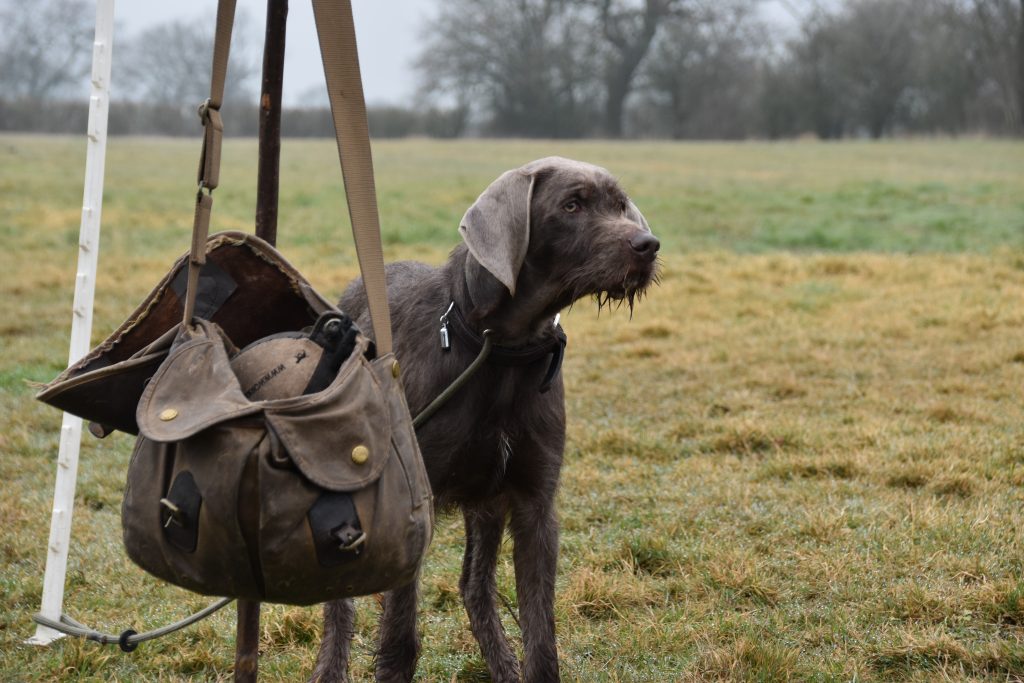Crate Training Residential Dogs

I am a big advocate of crate training dogs. With young puppies, the crate is a safe, secure and quiet environment for your dog. As time goes by, the crate becomes ‘home’ for your dog. It’s essential for dogs to know their place in the pack structure; the crate provides this place in a physical sense.
Many of the dogs who come to me for residential training have had crate training and settle very quickly. However, I currently have a Slovakian Rough Haired Pointer in residence. Rosie had a one-to-one lesson recently and it was agreed residential training would be beneficial. She has always lived outside in kennels as she will be a working dog, hunting with hawks. As a consequence, Rosie is not toilet trained in the way a dog in a home setting would be.
When she first arrived I introduced her to her large crate. She settled in her bed area and quickly used the other area as a toilet. I would never leave a dog to soil their living area, it’s distressing for them, so this was something I had to deal with quickly. I moved Rosie to a smaller crate where she still had room to stand, lie down and move around but that was now 100% covered with bedding. Dogs will rarely soil their beds and within 24 hours, Rosie was dry.
Dealing with attention seeking behaviour
Pointer breeds are often anxious and need a lot of attention. I certainly knew I had Rosie in residence as every time I entered my kennels, she began to whimper. Many dog owners give in to this kind of behaviour and as a result end up with their dogs sleeping on their beds. I didn’t give her the attention she was demanding and again, within 24 hours, she had quietened down.
I’m really looking forward to working with Rosie. This is a new breed of dog with good hunting instincts: it will be interesting to see what we can achieve. Now we have the housekeeping essentials in place, we can get on with her intense training programme.
Posted: February 28, 2019
